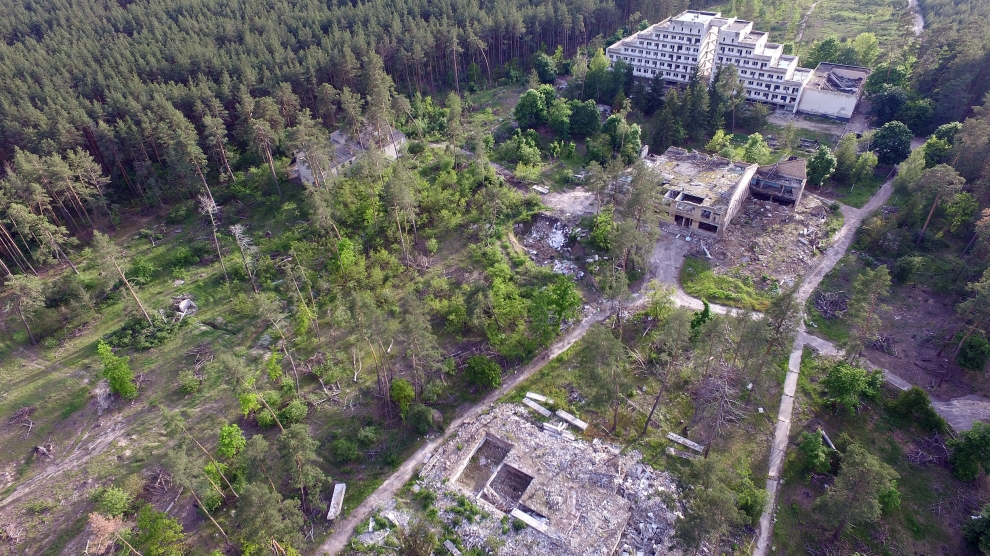Our weekly digest of articles about emerging Europe published elsewhere this week, all of which caught our eye and all of which are well worth your time. Listing them here, however, does not necessarily mean that we agree with every word, nor do they necessarily reflect Emerging Europe’s editorial policy.
—
How Chernobyl has become an unexpected haven for wildlife
Many people think the area around the Chernobyl nuclear plant is a place of post-apocalyptic desolation. But more than 30 years after one of the facility’s reactors exploded, sparking the worst nuclear accident in human history, science tells us something very different.
—
Eastern Europe leads the world in cryptocurrency adoption — legal and otherwise
New data provided to Fortune by the cryptocurrency research firm Chainalysis finds that Ukraine and Russia rank first and second, respectively, in the adoption of cryptocurrencies like Bitcoin. But while the vast majority of this activity is legitimate, Eastern Europe also leads the world in the illicit use of cryptocurrency on darknet marketplaces and in ransomware schemes.
—
Uzbek city demolishes historic building before presidential visit
Authorities in Uzbekistan’s ancient city of Samarkand have torn down a historic building ahead of a visit by President Shavkat Mirziyoev despite an outcry by activists.
—
Poland’s club scene fights for LGBTQ+ rights
As towns declare themselves ‘LGBT-free zones’, Polish DJs and musicians are leading furious opposition to widespread homophobia and police brutality.
—
Quo Vadis, Aida?: A gripping and tragic feminist drama about Bosnian genocide
Films set among genocide can border on “trauma porn,” while a few like Life Is Beautiful and The Pianist reach divine heights by setting deeply human stories amongst unimaginable horrors. Quo Vadis, Aida?, the latest film from celebrated Bosnian filmmaker Jasmila Žbanic, is one such transcendent entry into the genre. The fact that the tragedy at its center is rarely remembered outside of its region makes it all the more powerful as a vital work of art.
—
Ditching dinars: Will the Balkans take to cryptocurrency?
The daring few involved in cryptocurrency and blockchain in the Balkans say the benefits could be big, if the regulatory framework is put in place.
—
Polish retailers seek eastern promise closer to home as coronavirus bites
Poland’s big clothing and footwear retailers LPP and CCC are switching focus back to Eastern Europe, sizing opportunities to add brick-and-mortar stores as international rivals concentrate on online sales during the pandemic.
—
Queen Tamar: The myth of a perfect ruler
Queen Tamar was one of Georgia’s most iconic and colourful rulers, a powerful medieval sovereign who controlled large parts of the Caucasus and the eastern side of the Black Sea and forged strong cultural links with both the Byzantine West and the Persian South. Her influence extended beyond the battlefield: she presided over the last phase of the Georgian ‘Golden Age’ which saw the building of classic Georgian churches and a flowering of the Arts that produced one of Georgia’s most important poets.
—
On Kosovo’s highest peak, shepherds are keeping ancient traditions alive
Many Kosovars see local shepherds as lazy or uneducated. But as Daniel Petrick discovers among the country’s Sharr Mountains, most shepherds are proud to defend the region’s ancient traditions — despite often finding themselves pushed into the trade through meagre state pensions or post-war decline.
—
Montenegro is the latest domino to fall toward Russia
After parliamentary elections, a pro-West government is out. Europe and the United States should take note.
—
‘My secret life’: Gay and Azerbaijani in rural Georgia
Linguistic barriers and tight-knit but conservative communities have left queer members of Georgia’s ethnic minorities isolated, vulnerable, and invisible to the country’s queer rights organisations.
—
In Ukraine, music’s most extreme genre is on the cultural front line in the fight against Russia
“We don’t have apolitical bands here in metal anymore. Not just in metal, you can’t be an apolitical musician. You can’t be apolitical in Ukraine.”
—
Unlike many news and information platforms, Emerging Europe is free to read, and always will be. There is no paywall here. We are independent, not affiliated with nor representing any political party or business organisation. We want the very best for emerging Europe, nothing more, nothing less. Your support will help us continue to spread the word about this amazing region.
You can contribute here. Thank you.


